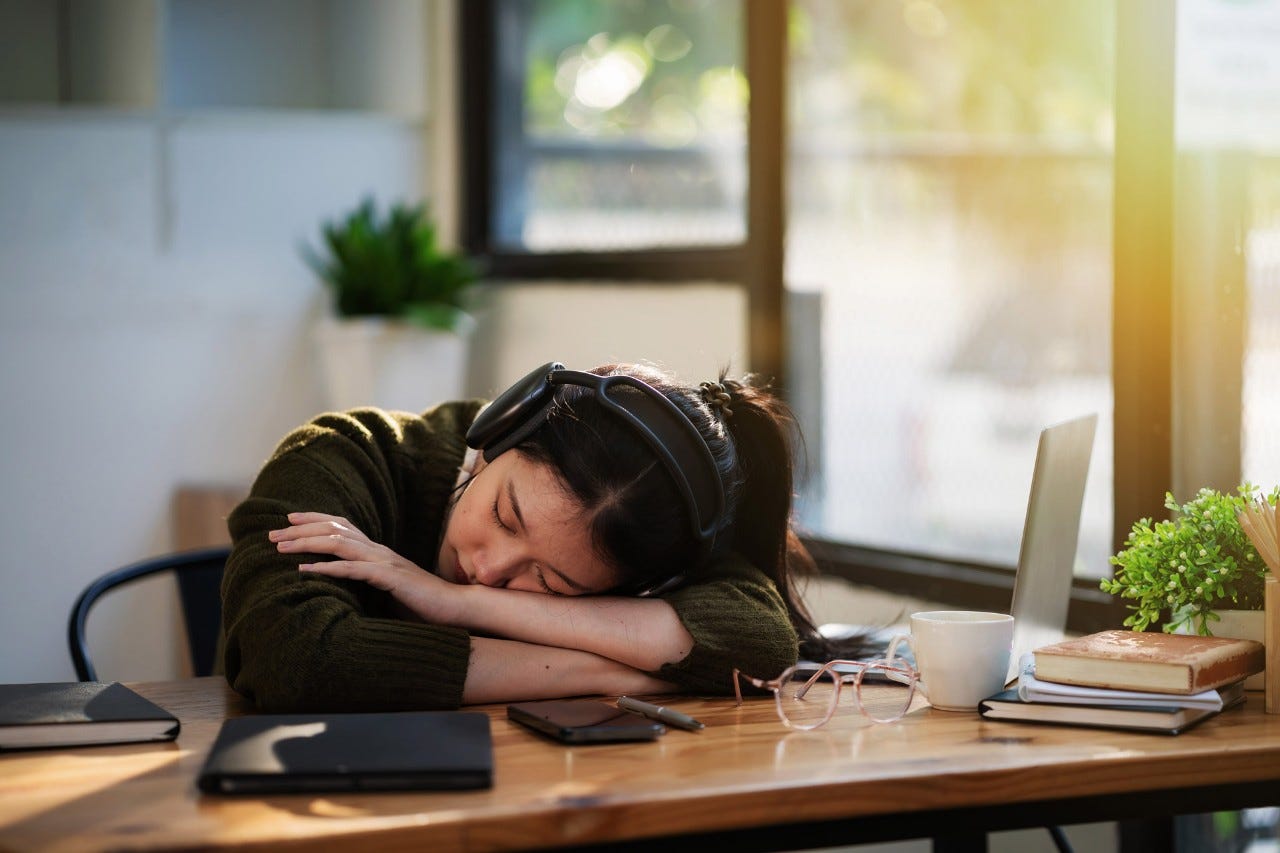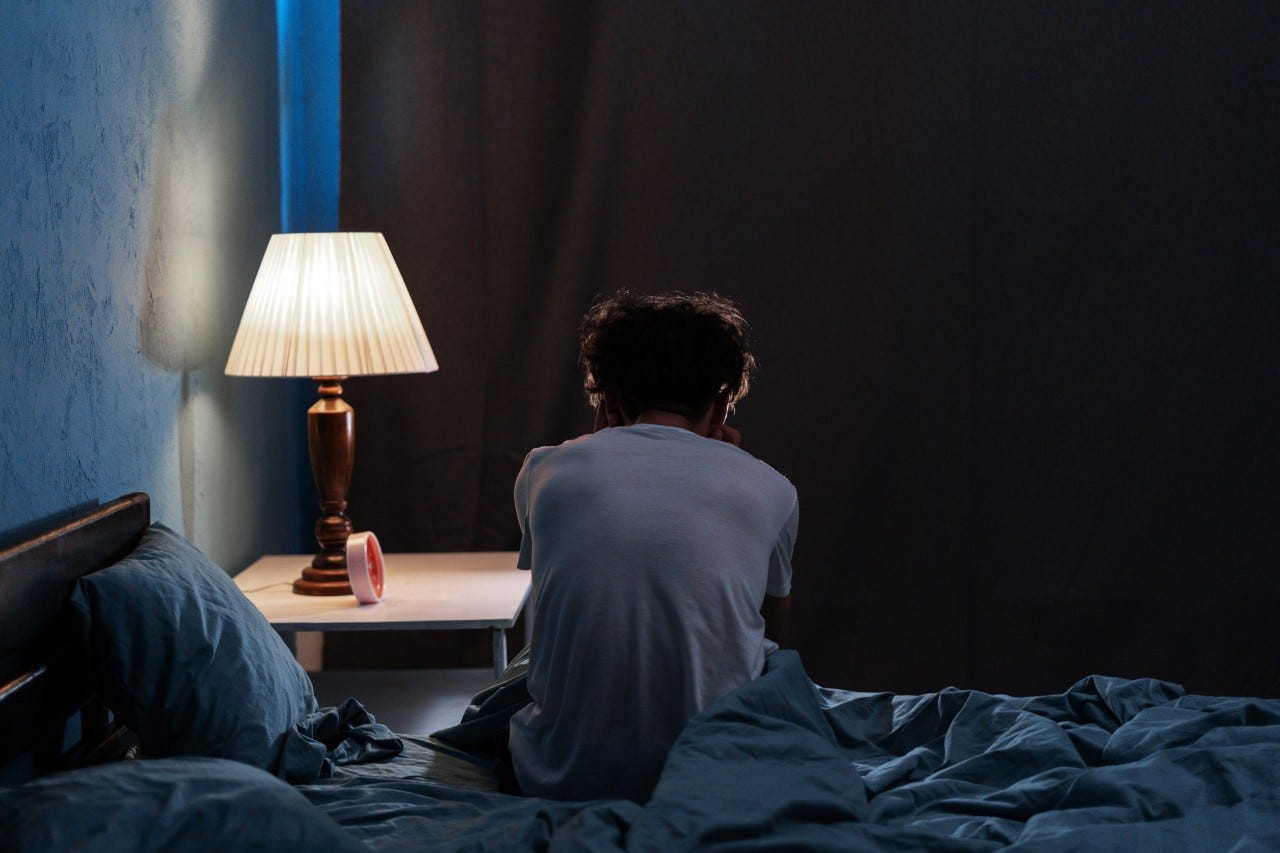Always tired: causes and tips for tiredness
It’s the same every morning: you’re tired even after a good night’s sleep. Why? And more importantly: what can you do?

What causes constant tiredness?
There are many reasons for feeling tired all the time, such as poor sleep, bad diet, lack of exercise or stress. “We first have to differentiate between tiredness and drowsiness,” explains Albrecht Vorster, sleep researcher at the Swiss Sleep House Bern.
Tiredness or drowsiness: the difference
“Tiredness means feeling listless, lacking energy and lacking drive. It sounds like a description of depression, and that’s actually one of the triggers for persistent tiredness. Drowsiness, on the other hand, is the tendency to fall asleep at inappropriate moments – for example while driving, at work or during a conversation.”
A simple test helps to differentiate between the two: “How do you feel after a shopping trip? Someone who experiences drowsiness will feel brighter and more awake afterwards. However, a person who suffers from tiredness or fatigue will be more exhausted.”
-
Iron deficiency
Iron deficiency is a frequent cause of persistent tiredness. It affects 5% to 10% of the population, rising to 20% in women of child-bearing age.
-
Inflammation
Infections and inflammations can also trigger fatigue – from the flu to chronic inflammations that go unnoticed in the body. In rare cases, this can even indicate a serious illness such as cancer. Essentially, any type of inflammation in the body can cause tiredness.
-
Under-active thyroid
An under-active thyroid can also be a cause of tiredness. If the body produces too little thyroid hormone, the metabolism slows down and fatigue is often one of the first symptoms. An unbalanced diet can also lead to nutrient deficiencies that impair the body’s vitality.
-
Sleep apnoea
Sleep apnoea (snoring with breathing interruptions) is another factor of tiredness. “This condition often goes unnoticed, particularly in women. While men with sleep apnoea tend to be sleepy, women are more likely to suffer from chronic fatigue – we don’t yet know exactly why this is the case,” says Vorster.
-
Mind
“The mind also plays an important role. Many sufferers of depression describe the feeling of having 10 kg of lead weighing them down,” says Vorster. The natural reaction is often to go to bed, but that’s exactly the wrong thing to do. Basically, the body and mind don’t need a lot of sleep – but they do need the right kind.
How much sleep do we need?
The ideal amount of sleep for most people is six to eight hours a night. Vorster explains that spending more time in bed doesn’t automatically mean more recovery. “It’s much more important to have a fixed rhythm, preferably with no more than 60 minutes difference.” This means going to bed and getting up at roughly the same time every day. Even if you’ve had a short night, you should still stick to this rhythm the next day. The body makes up for missed sleep primarily through quality, not quantity.
Does more time in bed mean more recovery?
Contrary to popular belief, sleeping too long can even be problematic: sleep becomes fragmented, lighter and we wake up more frequently. A vicious circle develops: we feel exhausted, withdraw further, sleep longer and go to bed instead of getting up and moving or socialising. Often, these dynamics are linked to the onset of depression.
When is constant tiredness no longer normal?
“If tiredness lasts for weeks and doesn’t disappear through normal recovery, this is a warning sign,” explains Albrecht Vorster, joint head of Swiss Sleep House Bern. If you’re constantly tired, the first step is to see your family doctor and investigate possible causes by means of a blood test. And also check to see if there is any underlying depression.
Medication
“Certain medications cause tiredness as a side effect, but this isn’t the main cause,” says Vorster. Your doctor should clarify where there is a connection.
Vitamin deficiency
A vitamin deficiency, particularly iron, can increase tiredness. It is important to eat a balanced diet, and identify any deficits by means of a blood test.
Effects on the mind
Tiredness affects not only your body, but also your brain and mind. Just two days of bad sleep can impact on your mood. “A lack of sleep makes you irritable, unfocused and emotionally unstable,” says Vorster. We become a worse version of ourselves. It is particularly obvious in overtired children – they are emotionally unbalanced and hard to calm down.
Increased risk of depression and anxiety
Long-term sleep problems also increase the risk of mental illness such as depression or anxiety. Sleeping badly for one or two days doesn’t have much impact on the body. “Sleep is there first and foremost for the brain, the body takes a back seat. It’s surprising how capable we are even after sleep deprivation. In the short term, we can compensate for a lot with motivation.” After two or three weeks, however, the first physical symptoms would appear if sleep problems persisted.
Healthy sleep, healthy mind
That’s why it’s so important to sleep well. Sleep plays a key role in stabilising our psyche. Vorster stresses the importance of not simply going to bed earlier or staying in bed for longer. That makes the symptoms worse. Instead, he recommends getting outside and recharging your batteries in the sun, talking to a friend or going dancing. It makes sense to take a break and relax, but if you’re already lacking energy and drive, then you have to look at where your energy comes from – then you might need stimulation, new input.
What helps against short-term tiredness?
If you find it hard to get out of bed in the morning, small changes can have a big impact:
- Fill up on daylight: Go outdoors for at least 30 minutes every day. Daylight is great for improving our mood. “We hugely underestimate the power of the sun,” says Vorster. Before going for a walk, make a note of how you feel (on a scale of 1 to 10) – and do the same afterwards. This helps you be conscious of any improvement.
- Exercise: Even a walk can help blow away the cobwebs. Exercising in the morning is especially beneficial.
- Drink plenty of water: Dehydration increases the feeling of exhaustion. Many people drink too little, especially in winter.
- Alternating showers: Cold water stimulates the circulation. A cold shower is more effective than a cup of coffee.
- Power naps: Short, but effective – sleep for no more than 15 minutes. Sleeping for longer can make you feel more tired.
Giving your day structure also helps: Actively planning the day and scheduling in short breaks can help you stay more alert. Particularly with mental tiredness, it’s especially important to motivate yourself to be active.
Home remedies for physical tiredness
- Warm bath: Relaxes the muscles and stimulates the circulation. A warm bath can help reduce stress and prepare the body for sleep.
- Milk with honey: a tried-and-tested home remedy that can help you fall asleep.
- Diet: It’s best to eat at a lot of vegetables, keep processed carbohydrates to a minimum and avoid snacks and sweet drinks. You can eat meat, but you don’t have to.
Always tired and exhausted: when to see a doctor
If the tiredness lasts for weeks or you’ve suffered with it for longer, it makes sense to see a specialist, particularly if you’ve already tried various home remedies and have taken steps to improve your sleep patterns. “Tiredness can be a warning sign,” says Vorster. If you know the cause, you can take action to remedy it – and finally feel better and full of energy.”



